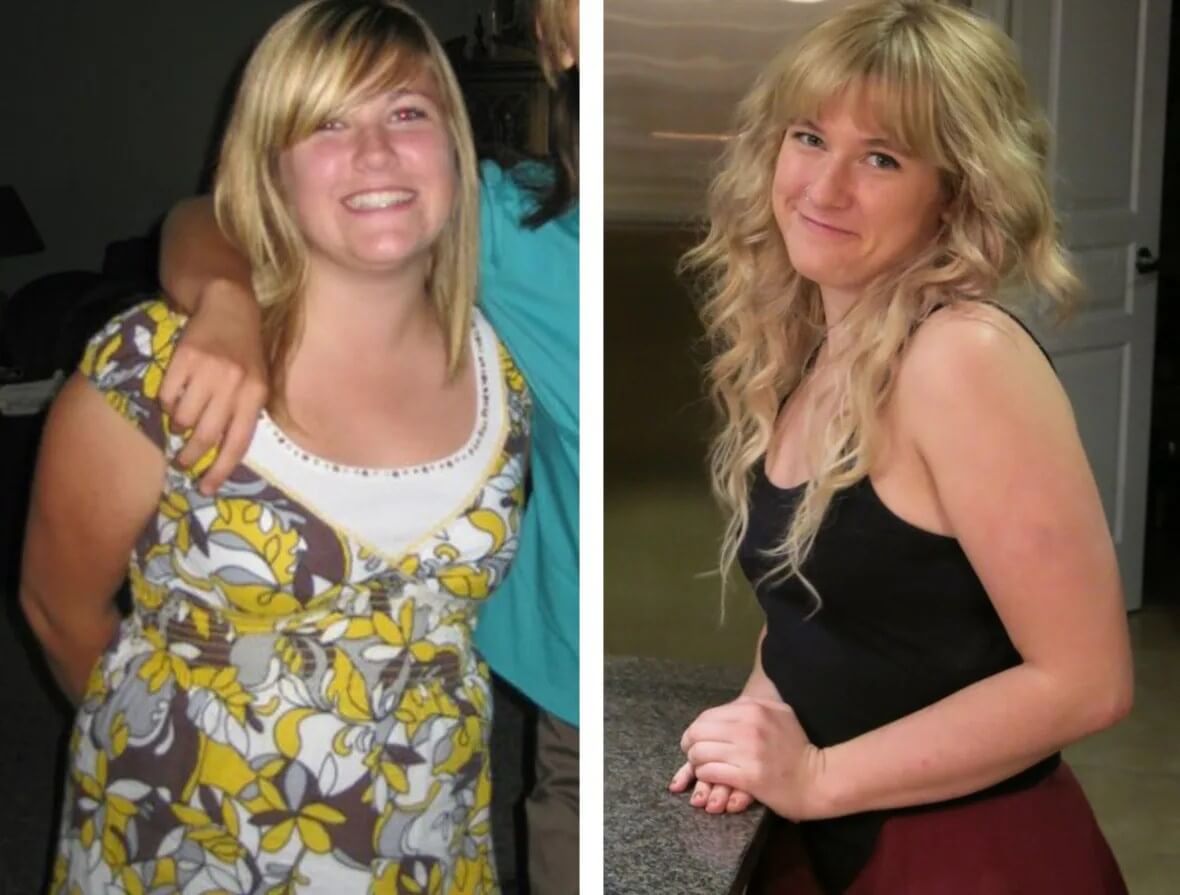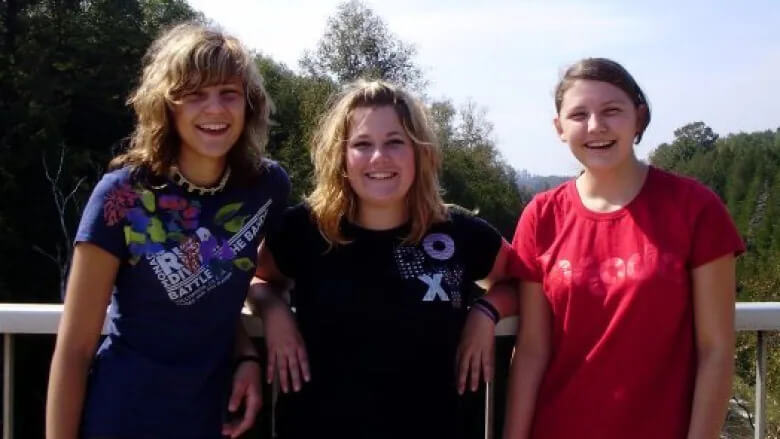Karli Jahn draws on her own experience with weight stigma, eating disorder, in her Master of Counselling research
Karli Jahn's weight stigma research helps to shed light on society's biases against larger bodies, and is rooted firmly in her own experiences with an eating disorder.
Now in recovery, the 2023 Athabasca University Future Alumni Award winner and Calgarian has dedicated her Master of Counselling research to this topic, with plans to soon continue this work with a PhD. The Future Alumni Award recognizes the leadership, service, and potential of a current AU student.
Her own experience with weight stigma, and how people-including family, friends, and boys she was interested in-treated her so differently when she lost significant amounts of weight due to her eating disorder, inspired this work.
Internalizing the 'thin person' role
"You kind of internalize this role that society gives you," Jahn said. "I was embracing this role as a thinner person because society was treating me really positively and giving me positive feedback."
And like others who struggle with eating disorders, it was difficult for her to recognize there was a problem. Even when her neuroscience professor began checking in with her during her undergraduate degree to see if everything was OK, she couldn't understand why.
"When the prof wasn't reinforcing that positive feedback, I was confused," she said. "It wasn't until years later I realized why she was concerned."
Jahn had internalized what she had been taught all her life, that her value was tied to her weight.
You kind of internalize this role that society gives you. I was embracing this role as a thinner person because society was treating me really positively and giving me positive feedback.
Karli Jahn, 2023 Future Alumni Award winner
Struggling to gain confidence as a learner
Jahn said while she has always loved learning, she never considered herself very good at it-something she attributes in retrospect to undiagnosed ADHD. To get to where she is today, she had to overcome not just an eating disorder but other mental health challenges. Some of these challenges were brought on or exacerbated by her childhood experience that included a strict religious upbringing.
She said the church's attitudes, and those of its members, were "patriarchal and misogynistic," which had a major impact on her confidence.
"My life was church. That was the only thing that was allowed," she said. "Girls couldn't do anything. You had to be submissive. You had to have your head covered."
Struggling with self confidence
Jahn's feeling that she was inherently inferior was reinforced in her own family and community. She said she felt the message she was getting was that she was fat, ugly, and nobody would want to be friends with her.
Jahn recalls a conversation in high school about plans for university, and her father asked her what she would do with a psychology degree.
"I don't know why I said this at the time, but I said maybe I'll get my PhD. I really want to do my doctorate," she said, but added her grades and performance in school prompted her to believe that she wasn't smart enough to see it through.
And unfortunately things would get worse for her before they got better.

False confidence from disordered eating
Jahn's belief she was inherently bad at school was reinforced during her first few years of university, during which time she was on academic probation. She was struggling with her confidence, and she found an unhealthy way to cope.
"Third and fourth year is when I developed a really horrible eating disorder," she said. "I woke up one day and said, 'I'm not going to eat any more.' And I barely did, for three years."
In addition to not eating enough, she began to compulsively exercise-waking up early to exercise, trying to do more in the afternoon, and then before bed. She suffered from insomnia as well, and would exercise when she couldn't sleep.
She lost 60 pounds in three months, and people's attitudes toward her seemed to change. People treated her differently, more boys started showing an interest in her, and she felt like she was doing something right.
'Fat Karli' vs. 'Thin Karli'
"I can't explain how much of a huge difference there was between 'Fat Karli' and 'Thin Karli,'" she said. "Everyone was celebrating and saying, 'You look amazing, keep it up.' A big message was, 'Make sure you don't get fat again. Don't give up. You look great now.'"
Of course, it wasn't sustainable. Eventually she realized there was a problem, prompted in part by her professor consistently asking if everything was OK, and in part by the emotional fallout from her boyfriend cheating on her.
She sought out and found mental health support, was diagnosed with an eating disorder, and set out on the road to recovery.
Discovering Athabasca University
Jahn moved to Calgary, finished her psychology degree, got a job working with kids with autism, and was eager to never return to school. Despite her love of learning, and love of going to school, she had never performed well and it wasn't a positive experience overall.
"AU really helped me become the 'smart' top student that I am today," she said. "I was not a good student, ever, before this program."
Fortunately for her, some of the people around her saw her potential. Her roommate and boyfriend, the man who is now her husband, encouraged her to apply for graduate school. She says she did it almost out of spite, to prove to them she wouldn't get in, but was accepted to AU's Master of Counselling program.
Having explored perceptions of weight stigma by reading feminist authors such as Roxane Gay and reading as much academic work as she could on the topic, Jahn was already well on her way to writing her thesis about weight stigma before she ever put pen to paper.
Exploring weight stigma
Jahn's work on her thesis was well-received, even before she was finished. While she was still in the relatively early stages of her research, she presented her work as part of AU's 2022 Three Minute Thesis competition-and won first place.
The led to some media interest in her research, and she was asked to write a first-person essay about her experiences for the CBC. After seeing the public comments about that essay online, however, she decided to pivot, and ended up writing her thesis as a critical discourse analysis on the comments that came in from that CBC article.
"It got a lot of comments, and strong response from the public," she said. "The comments were so juicy. I loved it."

PhD plans
Since completing her undergraduate degree, Jahn has gone from never wanting to do school again to finishing a Master of Counselling from Athabasca University and is looking at options to complete PhD research in the same general topic area of weight stigma.
In particular, she said she's very interested in working with researchers at the Body Image Research Lab at the University of Calgary-including Dr. Shelly Russell-Mayhew, whose work Jahn cited in her own research.
Jahn's drive to continue this work is rooted in her conviction of its importance-not just for people who are stigmatized by their weight, but for all of us to better understand the biases we may not even realize we have.
"Be kinder, and be a little bit more aware of how your bias shows up," she said. "If you were going to say something that's a little bit unkind to a fat person, ask if you'd say that to a thin person."
"How much of your opinion are you basing on this one characteristic?"